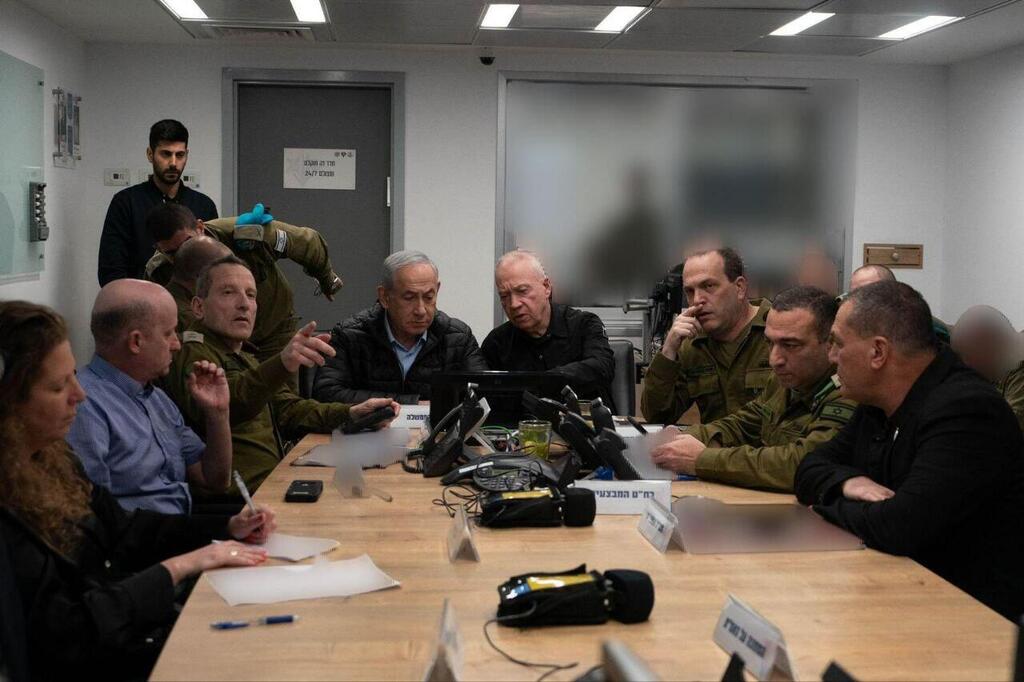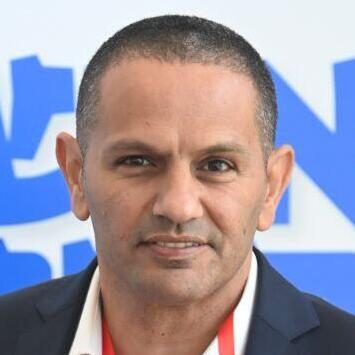Getting your Trinity Audio player ready...
"This is one of Israel's most successful operations to date," a senior Israeli official told Ynet, just hours after the outcomes of the IDF’s strike in Iran began to unfold. "All designated targets were hit and damaged," he added. "It was a show of strength that has bolstered deterrence."
The official acknowledged criticism from both coalition and opposition members over the decision not to target oil infrastructure or nuclear sites, despite weeks of mounting public expectations.
'The response to the drone was in Beirut, with the demolition of buildings—this is not Iran.'
The reason, he explained, lies in Israel’s cooperation with the U.S., which requires certain compromises. He also addressed the unfulfilled expectation that the strike would serve as direct retaliation for the drone attack on Prime Minister Benjamin Netanyahu's private residence, saying, "The response to the drone was in Beirut, with the demolition of buildings—this is not Iran."
Despite the mixed reactions, the senior official emphasized the immense scale of Israel’s Operation Days of Repentance. "No serious person can call this a 'light strike' when 150 aircraft hit targets 1,500 kilometers away, confronting a well-defended regional power," he said, referring to Iran's considerable air defenses.
The operation dealt a blow to two of Iran’s critical military capabilities: ballistic missile production—like those fired at Israel earlier this month—and its air defense systems, with significant damage to IRGC command facilities as well.
1 View gallery


Prime Minister Benjamin Netanyahu and Defense Minister Yoav Gallant leading the strike on Iran from the underground bunker in the Defense Ministry headquarters in Tel Aviv
(Photo: Defense Ministry)
"The logic here is not just deterrence but also securing an advantage should further rounds of blows arise,” the official continued. “Iran’s ground-to-ground missile production capabilities have been disrupted for a considerable period, a significant achievement. After this operation, Iran is left weaker, with compromised defenses and diminished production capacity. We’ve created new strategic room for action while enhancing deterrence.”
It’s unlikely that Iranian authorities will publicly acknowledge the full extent of the damage inflicted, which reportedly includes hits to advanced air defense systems and the exposure and destruction of secret sites.
According to sources in Tehran speaking to local and international media, Israel targeted missile bases, an S-300 missile battery—critical to Iran’s air defense—and the covert Parchin facility near the capital. Much of the damage, however, has been downplayed or concealed. Yet the fact remains: Iran, a nation that has threatened Israel’s existence for decades, was attacked on its own soil and sustained a strategic blow.
'This operation was exactly as mandated by our political leadership,' said a senior IDF official. 'We were not directed to target Iran's nuclear capabilities or attempt to topple its regime.'
Although nuclear and oil facilities remained untouched, Israeli officials described the decision to avoid these sites as reasonable and strategic, given key factors such as the critical partnership with the U.S. Washington not only declined to join any nuclear-focused action but also explicitly vetoed such an attack, opposing economic infrastructure strikes—especially on oil facilities—due to potential global economic fallout on the eve of consequential elections.
"This operation was exactly as mandated by our political leadership," said a senior IDF official. "We were not directed to target Iran's nuclear capabilities or attempt to topple its regime. Given Iran's heightened alert, the results are favorable."
Now, the pivotal factor is the outcome of the U.S. presidential election and the next administration's policy on the Middle East. Although solving the nuclear issue was not anticipated at this stage, there is limited time left for action, and the new administration will need to engage.
For now, Israel appears satisfied with U.S. backing and Iran’s warning against retaliation. The dilemma for Iran’s leadership remains: respond forcefully or contain the attack. Israel believes a response is likely, though its timing is uncertain, leaving tense days ahead.
Get the Ynetnews app on your smartphone:



